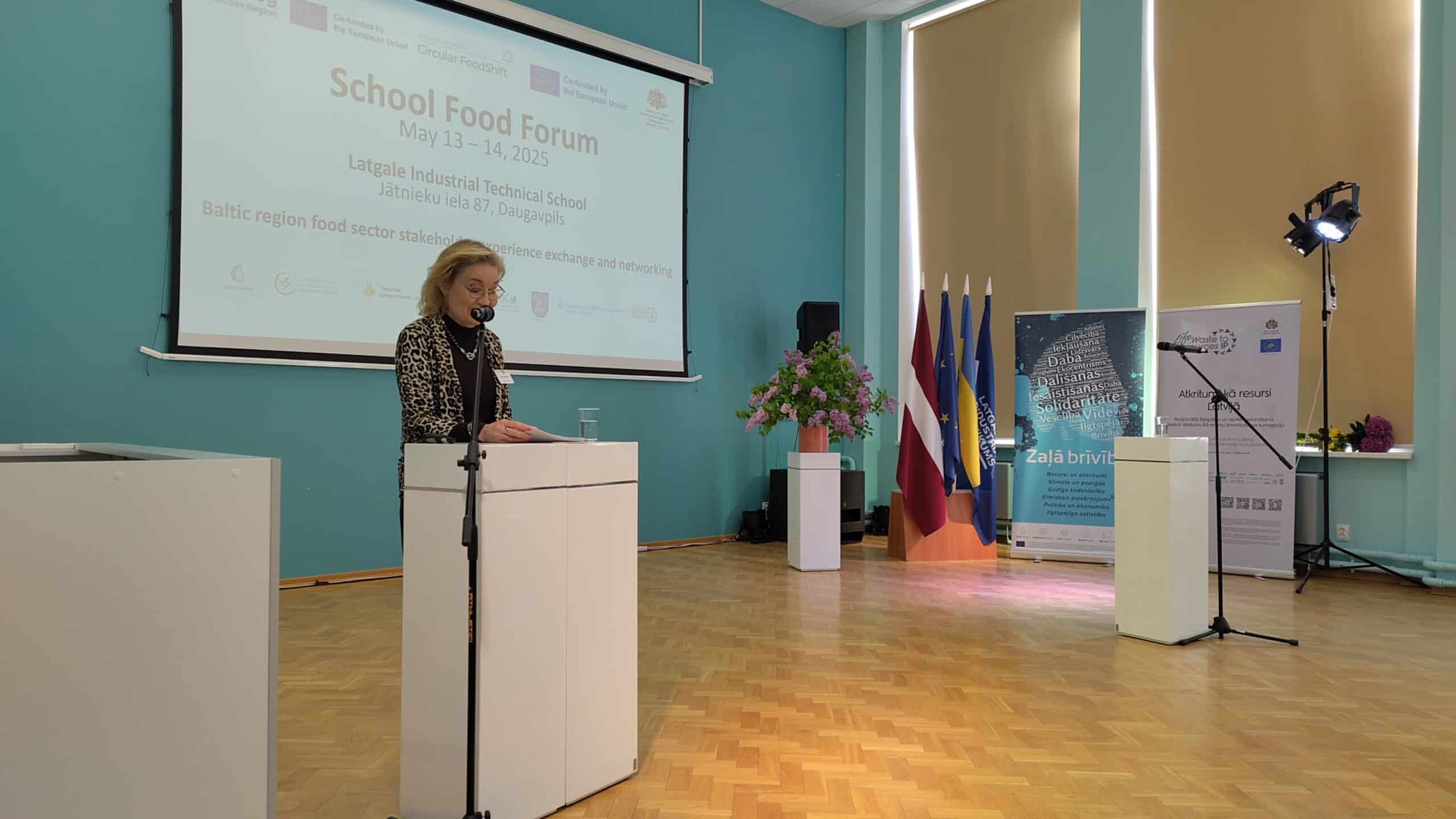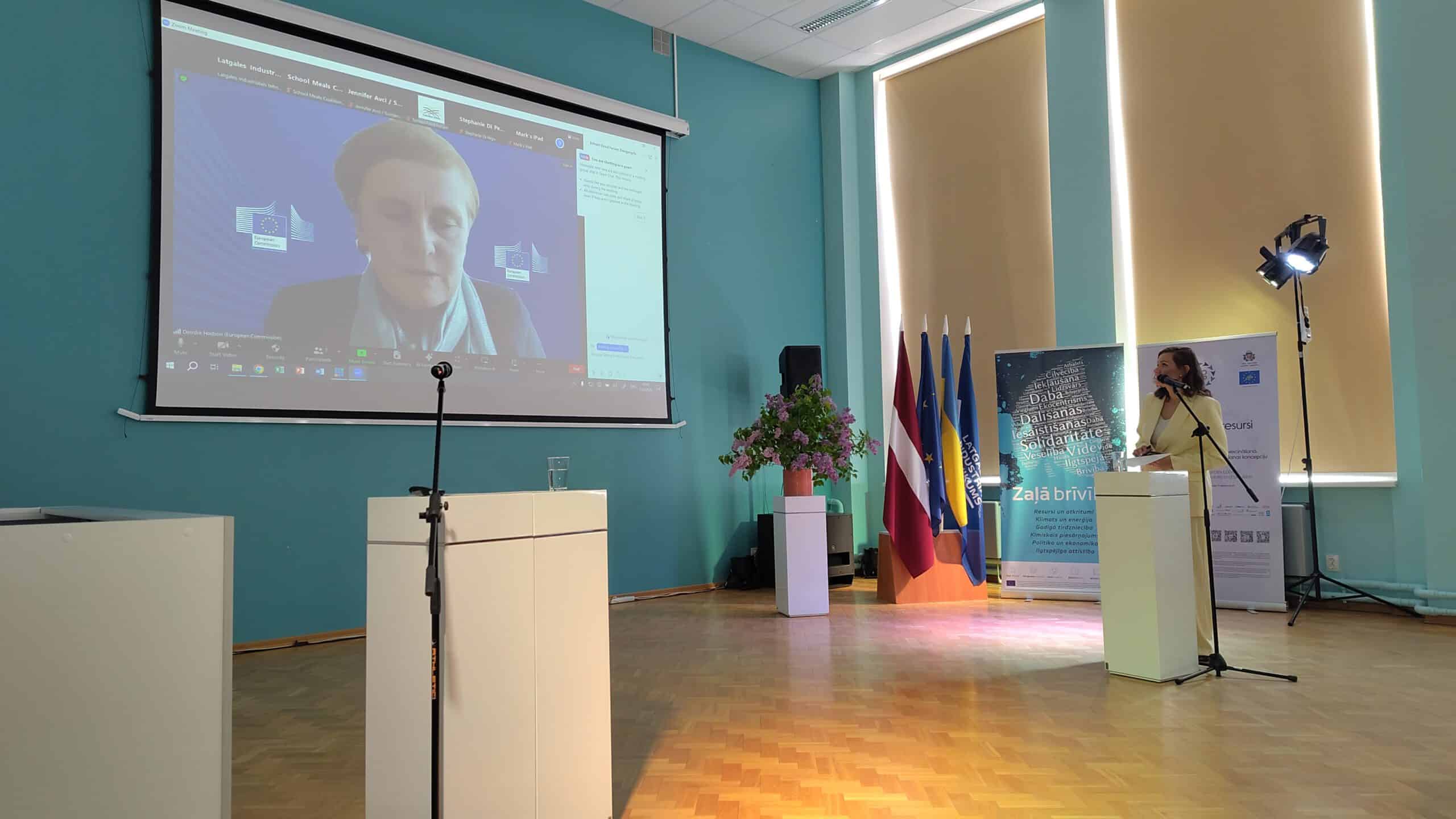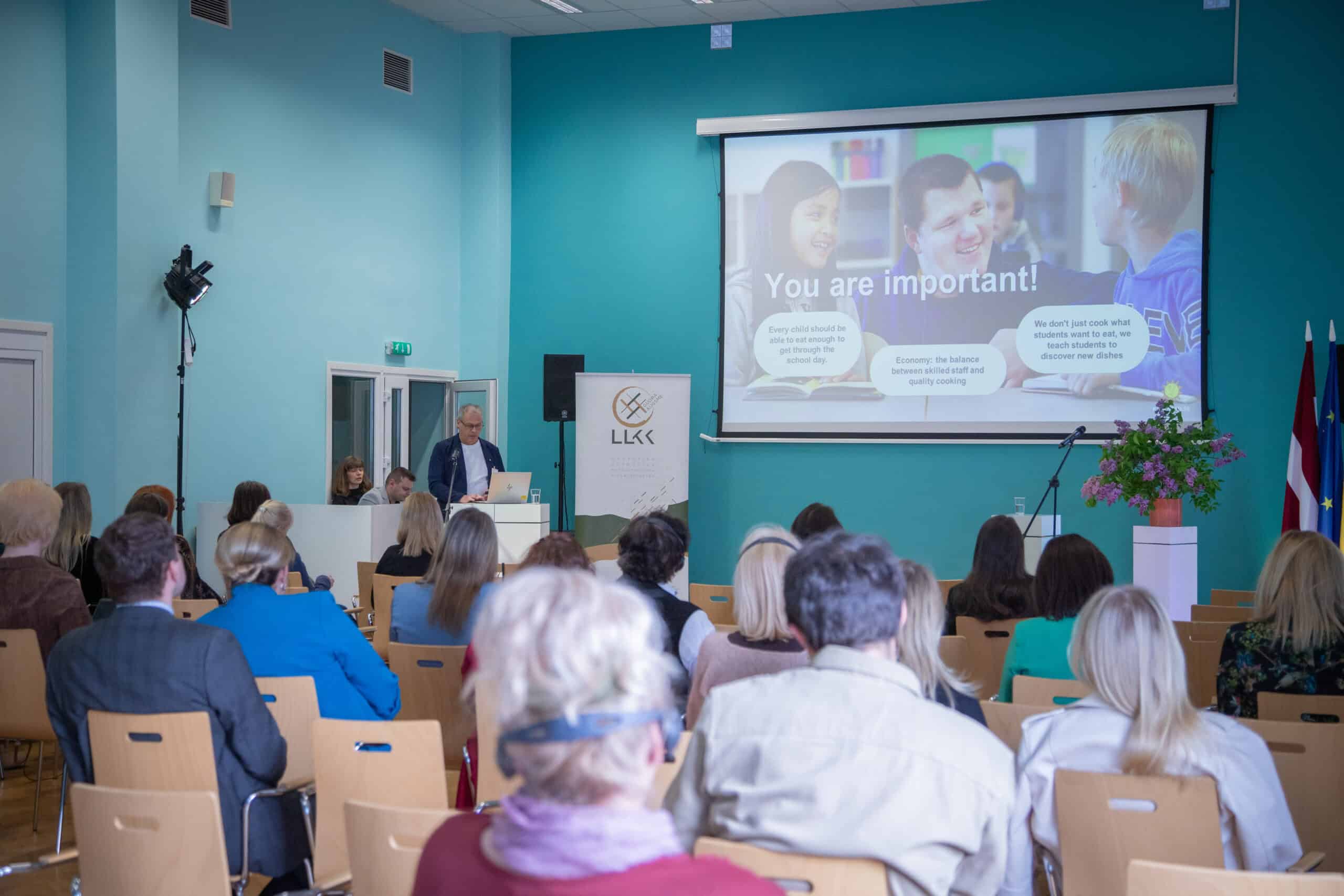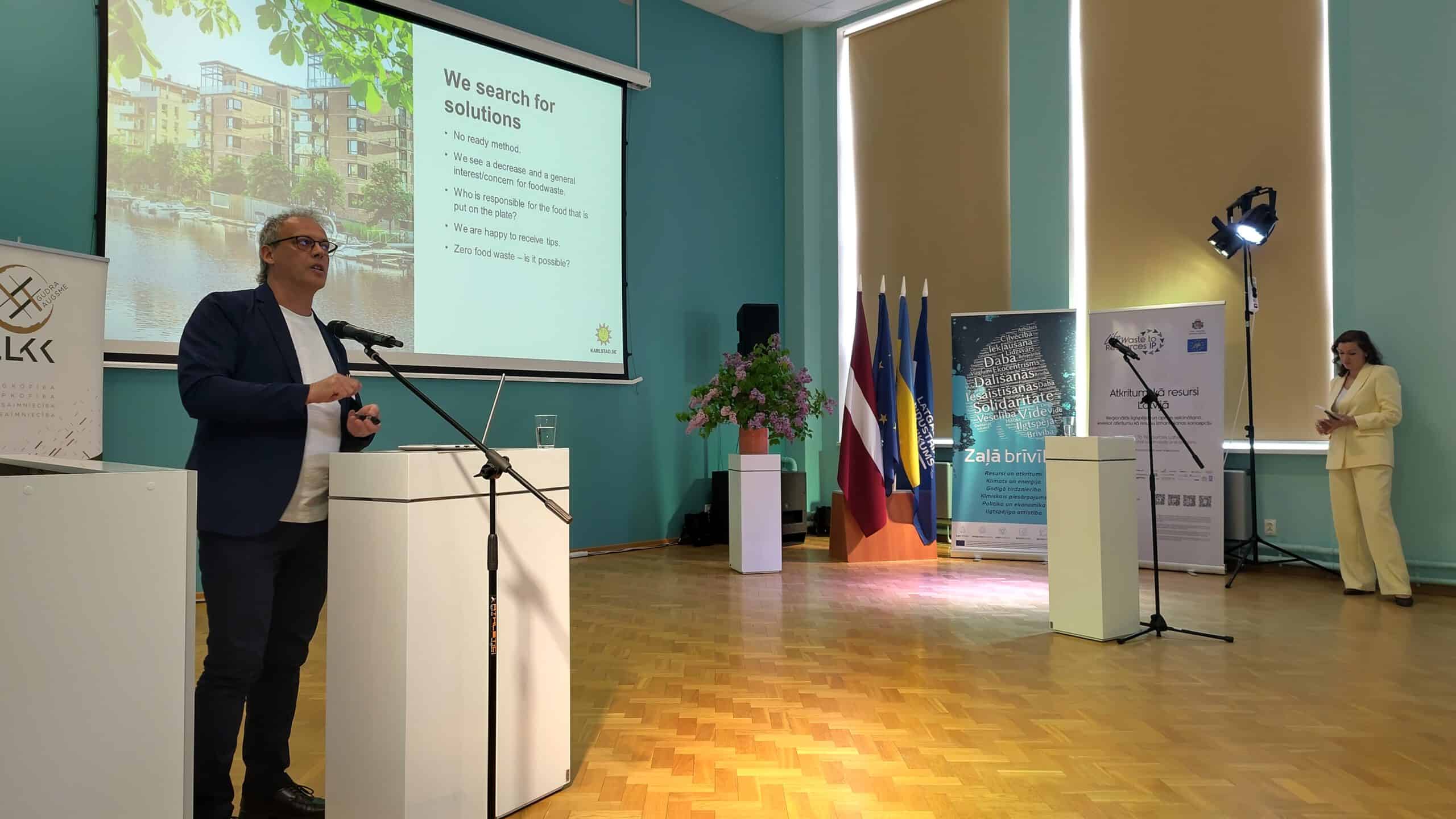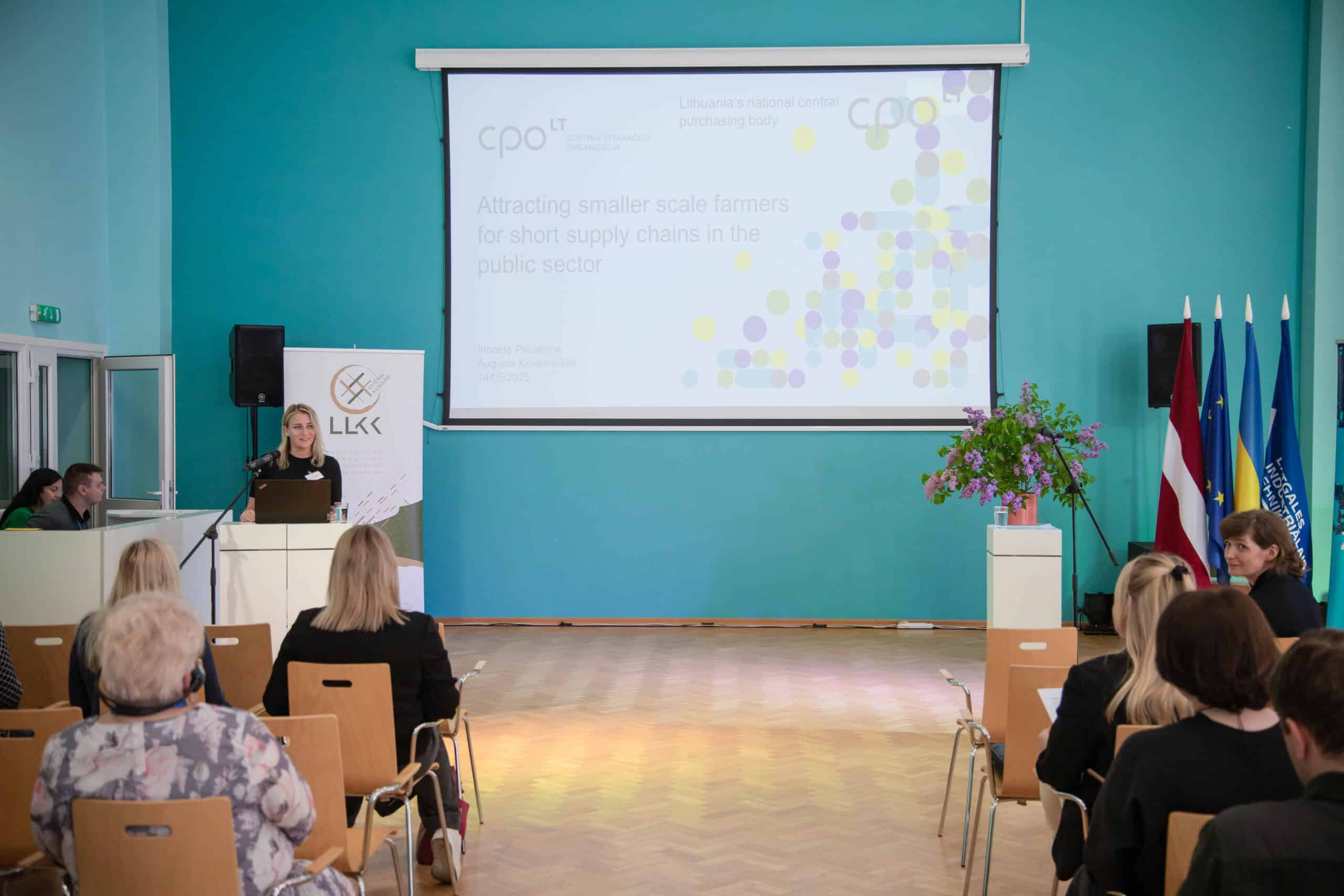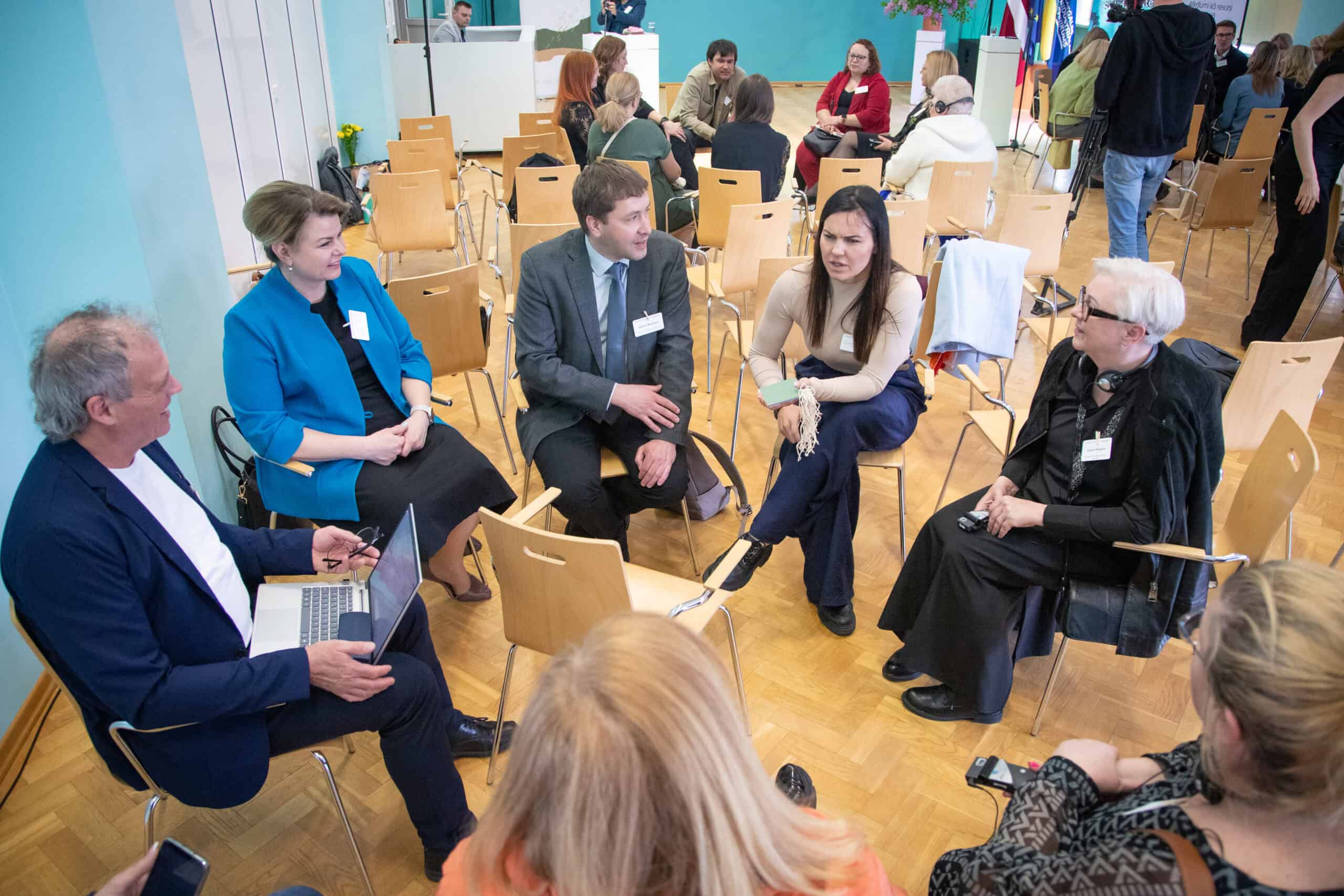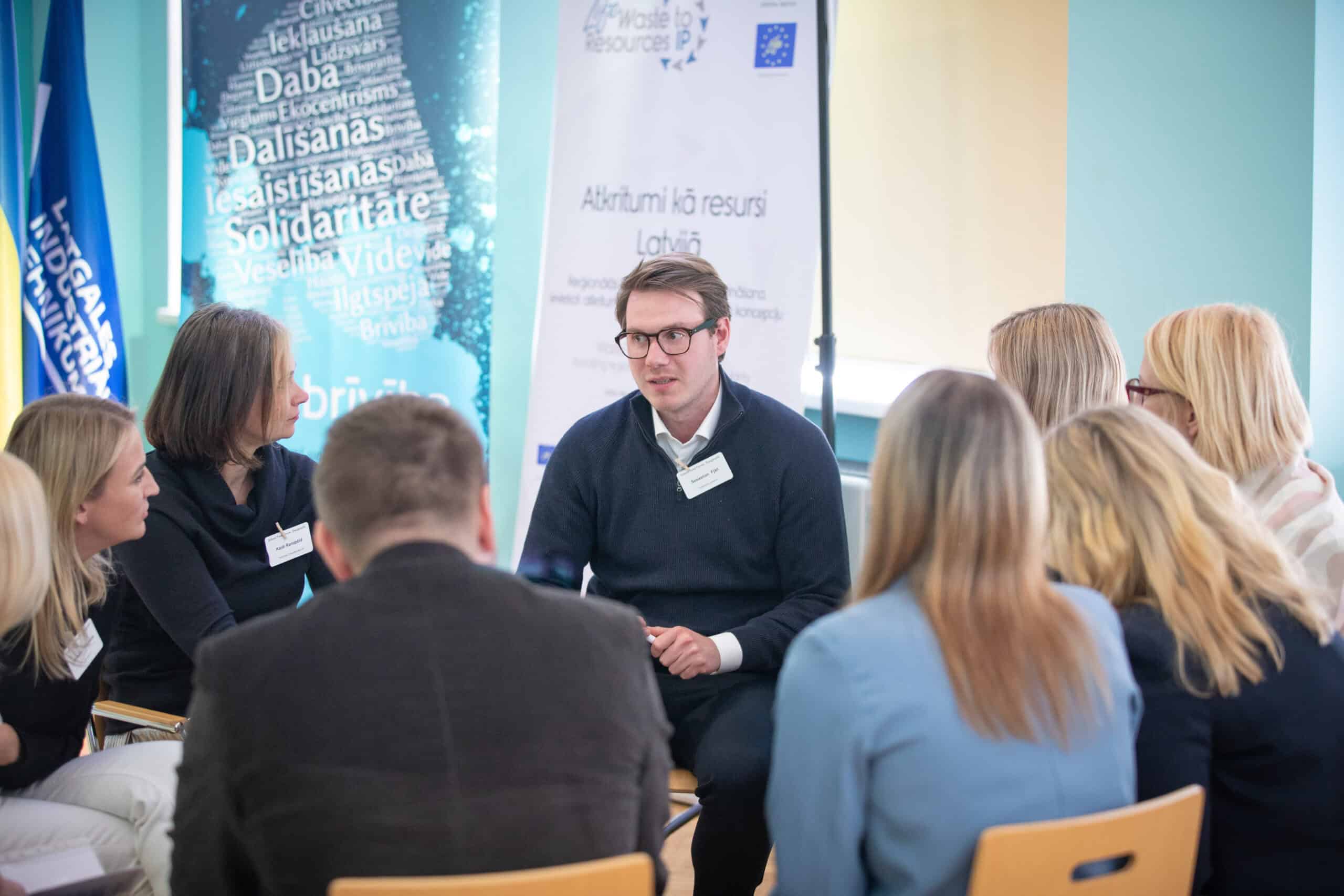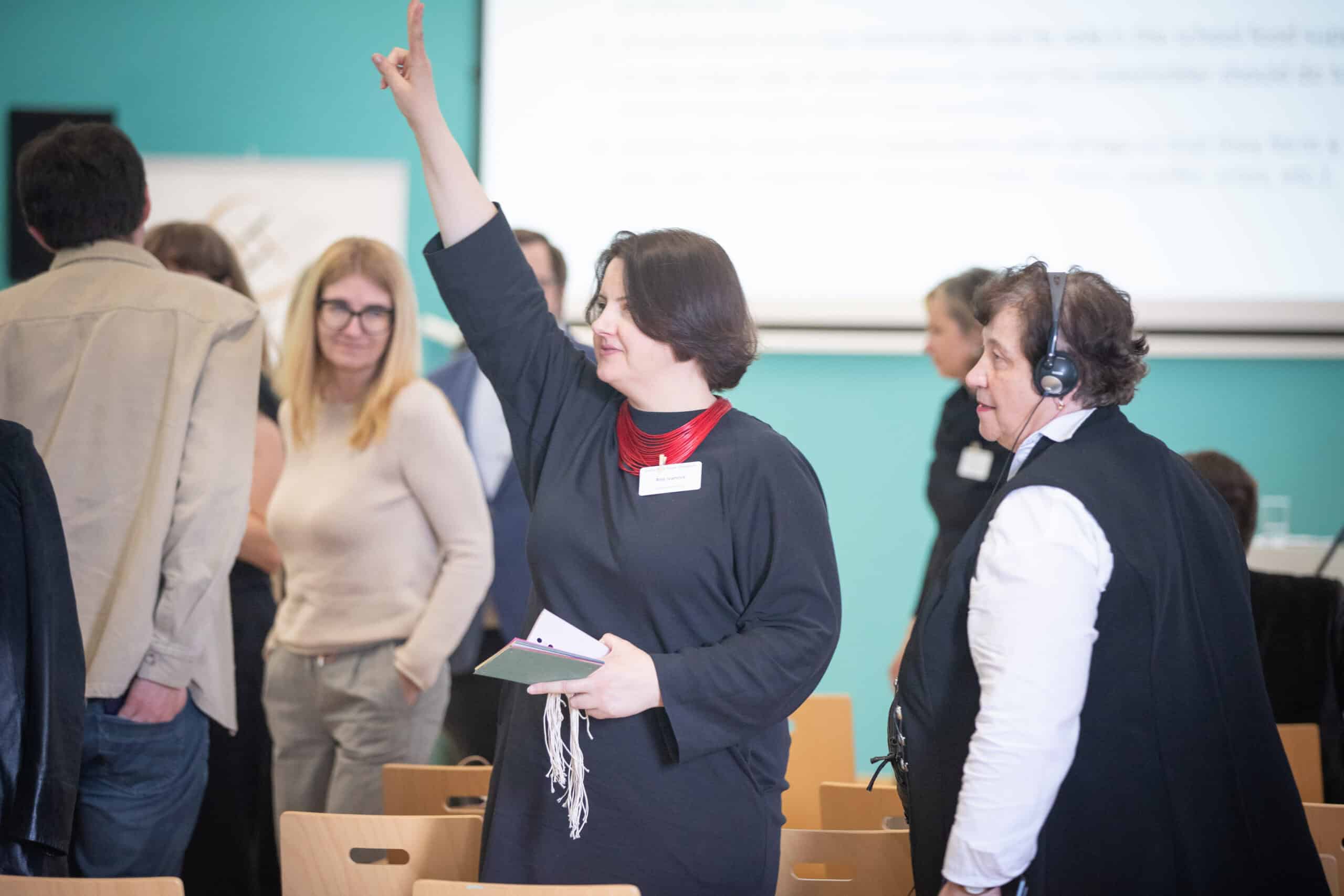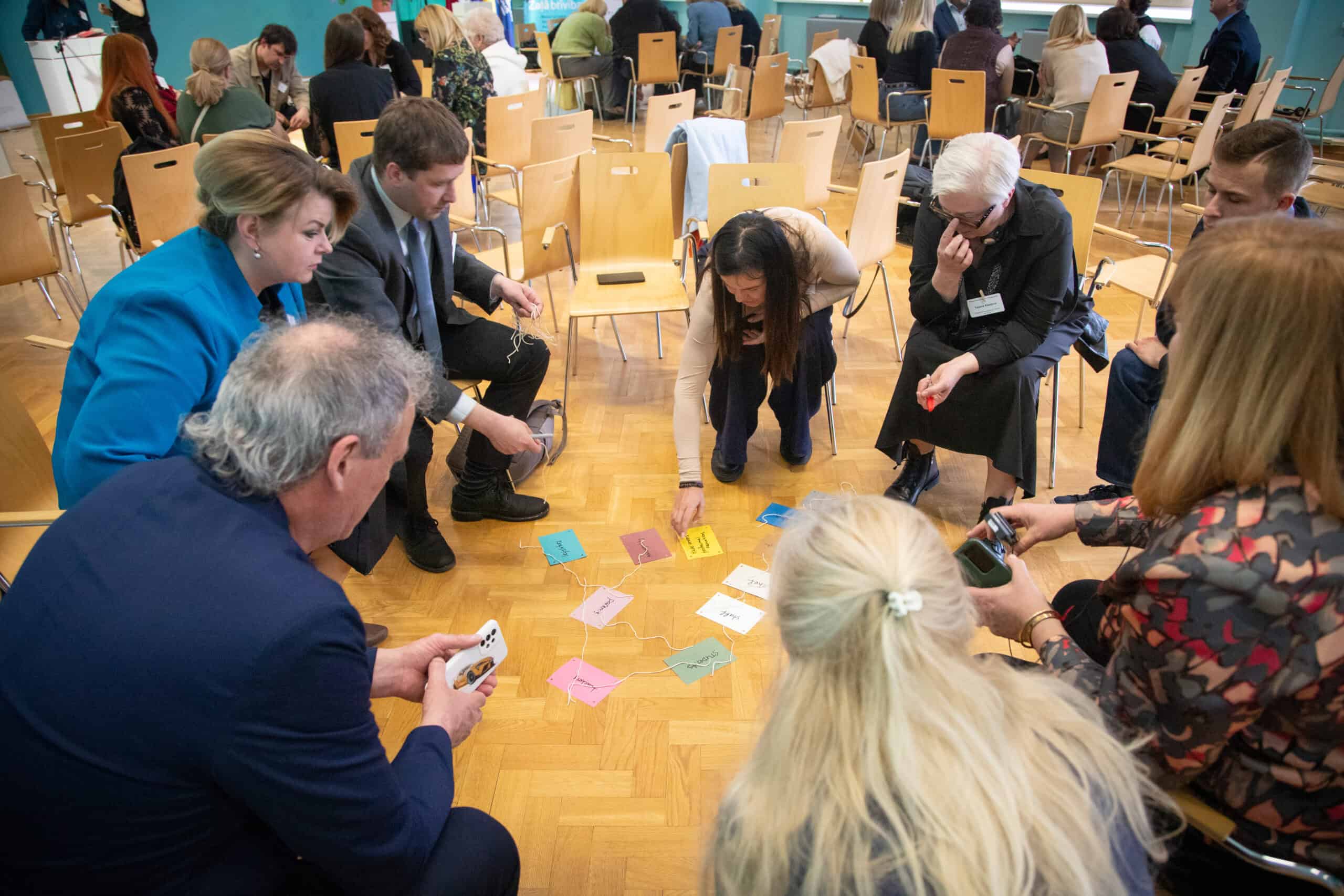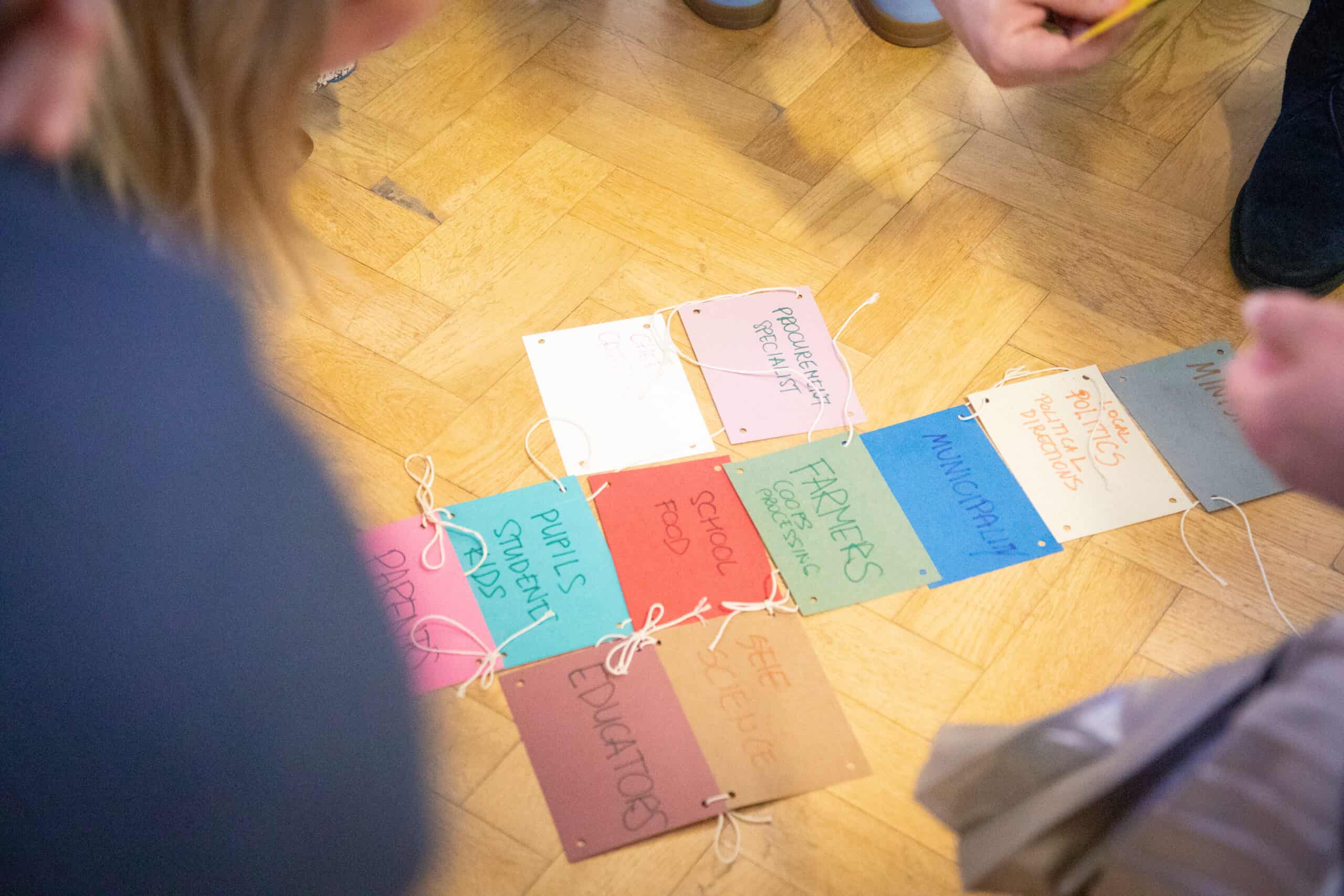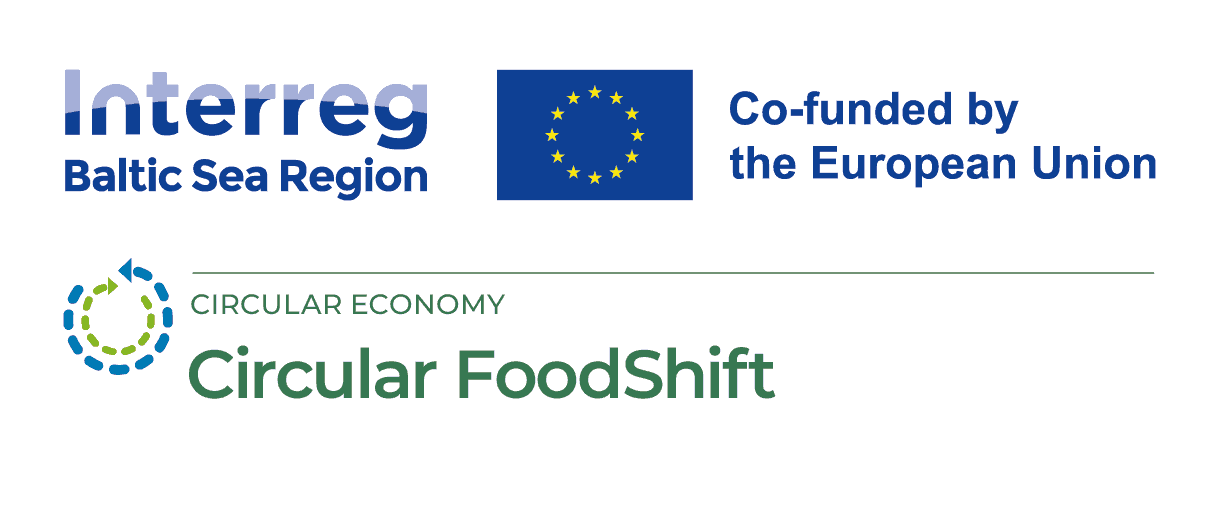
Transforming School Food Systems
02 June 2025
On May 13–14, 2025, the city of Daugavpils became the heart of an important regional dialogue on sustainable school food systems. The School Food Forum gathered more than 80 participants from Latvia, Estonia, Lithuania, Finland, and Sweden, bringing together educators, policy-makers, procurement experts, local producers, and civil society leaders to rethink the future of food in schools.
The event began at the Latgale Industrial Technical School with opening remarks from the Ambassador of Finland to Latvia, Anne Saloranta. Her message emphasised the importance of collaboration across borders to achieve meaningful change in school food systems:
“Only through cooperation can we build systems that nourish our children and support local economies,” she said.
Participants then explored key international initiatives, including a presentation from the European Commission on integrating food education into schools, and insights from Italy’s School Food Coalition—a growing global movement working to improve school meals and learning environments.
Latvia’s own efforts took center stage as Agnese Radžele-Šulce shared her experience with the “From Farm to School” initiative in the Latgale region. The project has helped reshape how schools source their food and educate children about healthy eating.
“Transforming school meals is not just about the menu—it’s about changing mindsets and building connections between children, food, and local producers,” she noted.
This was followed by presentations from Finnish and Swedish partners on reducing food waste through education. Participants were then invited to an interactive workshop to map out the actors involved in school food procurement—from farmers to policy-makers—and explore the complexities of making systemic change.
In the afternoon, forum participants visited kindergartens in the Daugavpils Chemistry neighbourhood. The field visit gave a hands-on look at how young children in Latvia are being introduced to local food and kitchen culture.
“It was inspiring to see how even small children understand where their food comes from. It’s a great reminder that food education can start early,” said one participant from Sweden.
The day concluded with an evening cultural program at Rainis’ House in Berķenele, where guests enjoyed traditional Latgalian dishes—barley groats, kupāti sausages, and rye bread dessert—while discovering the region’s rich culinary heritage.
The second day of the forum shifted focus to sustainable food procurement—a crucial lever for improving school meals. Moderated by a local expert, the session opened with an overview of the Latvian context.
The Procurement Monitoring Bureau (IUB) outlined regulatory challenges and called for more flexibility and innovation in public food tenders.
The Latvian Rural Advisory and Training Centre (LLKC) introduced the platform novadagarsa.lv, which connects schools with local producers and could serve as a future backbone for dynamic procurement systems.
The Latvian Association for Sustainable Procurement emphasised the importance of incorporating green and social criteria in tenders, highlighting how procurement can be a tool for positive change—not just cost savings.
International speakers presented innovative models that enable small producers to participate in public procurement:
- The national procurement office CPO LT in Lithuania has developed a user-friendly national procurement platform that lowers entry barriers for small producers.
- Vallentuna Municipality in Sweden shared its flexible Dynamic Purchasing System (DPS), which regularly allows new suppliers to join and supports seasonal, local food use.
- Estonia showcased practical examples of DPS use in school catering, stressing the importance of strong digital infrastructure and collaboration between tech providers and municipalities.
Latvia’s cooperative “Latgales Dabas Dots” shared how they are successfully supplying schools with local, high-quality products. Their work demonstrates how regional producers can play a vital role in healthy school meals while strengthening the local economy.
“It’s not just about food—it’s about community, identity, and sustainability,” said a representative of the cooperative.
A hands-on workshop invited participants to envision a shared, cross-border dynamic food procurement system for the Baltic Sea Region. Key takeaways included:
- The need for interoperable digital platforms that support regional cooperation.
- Importance of local context, with systems tailored to national realities but guided by shared principles.
- A call to launch a Baltic pilot project, uniting several municipalities to test the model in practice.
The forum concluded with a rainy evening at the Aglona Bread Museum, where participants dined from clay plates and enjoyed dishes like “Veistūkļi.” The meal was accompanied by songs, including the Latvian folk tune “Pie Dieviņa gari galdi”, echoing the spirit of community and shared purpose that defined the event.
The forum was hosted by the Circular FoodShift project, part of the Interreg Baltic Sea Region Programme, in partnership with:
- Association of Municipalities of Tartu County
- CPO LT
- Green Liberty
- Latgale Planning Region
- Latvian Rural Advisory and Training Centre
- Nordic Council of Ministers’ Office in Latvia
- Seinäjoki University of Applied Sciences
- Sustainable Gastro
The School Food Forum in Daugavpils was more than an event—it was a movement toward a better, fairer, and more sustainable way of feeding and educating our children.






